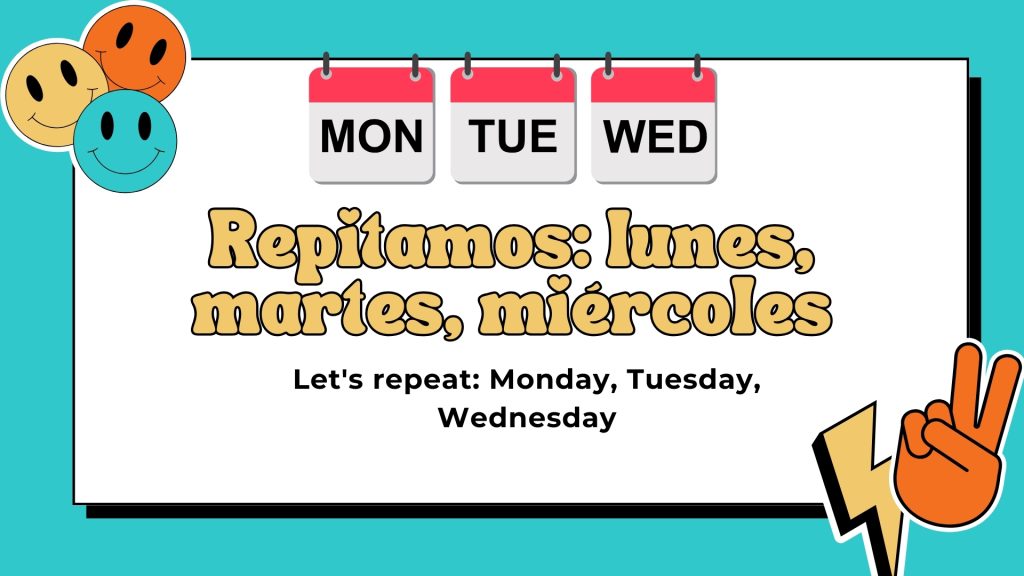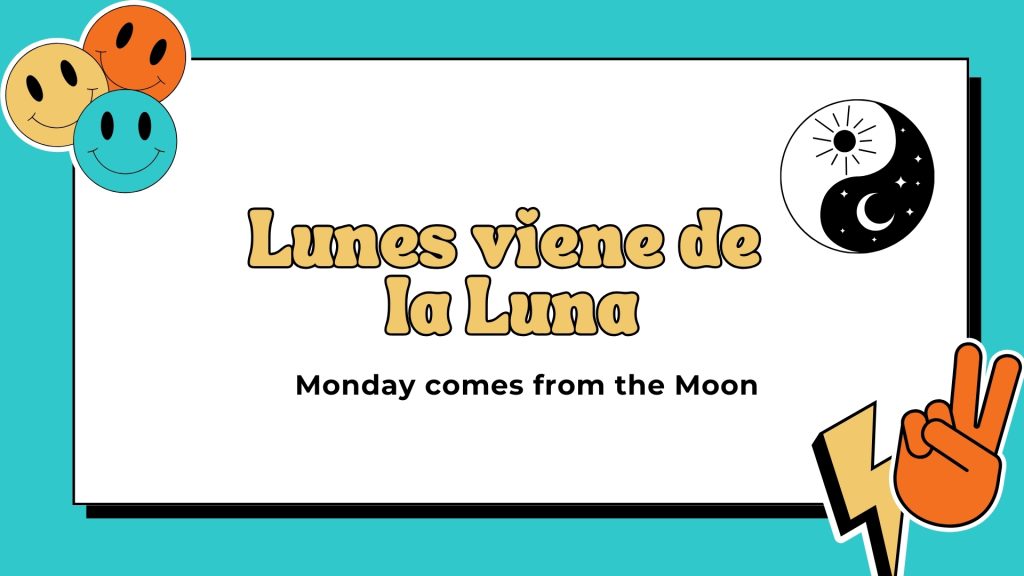Learning the days of the week in Spanish isn’t just about adding words to your vocabulary. It’s a peek into the culture and history that shape the language. Take ‘martes’ for example, which means Tuesday. It comes from Mars, the Roman god of war. This is similar to other Romance languages. But these names do more than just sit in the dictionary—they affect how sentences are built and understood. For example, using definite articles in Spanish can change the whole meaning of a sentence.
When you dive into these details, you’re not just improving your Spanish. You’re also getting a better feel for how language and culture interact. This might lead you to explore other aspects of Spanish, from common sayings to special traditions. It’s all about connecting the dots between words and the world they come from.
Days of the week in Spanish
Learning the days of the week in Spanish isn’t just about knowing the words. You also need to get the pronunciation right, remember them well, and understand how grammar works with them.

For example, knowing when to use ‘el’ for a single day and ‘los’ for multiple days makes a big difference in meaning. By focusing on these details, you’ll find it much easier to communicate clearly in Spanish.
| Spanish Conversation | English Meaning |
|---|---|
| Hoy es lunes. | Today is Monday. |
| Mañana será martes. | Tomorrow will be Tuesday. |
| Ayer fue domingo. | Yesterday was Sunday. |
| El miércoles tengo una cita. | I have an appointment on Wednesday. |
| ¿Qué haces el jueves? | What are you doing on Thursday? |
| El viernes salimos a cenar. | On Friday, we go out to dinner. |
| Me gusta descansar los sábados. | I like to rest on Saturdays. |
| ¿Trabajas los lunes? | Do you work on Mondays? |
| El martes estudio español. | I study Spanish on Tuesday. |
| Los domingos visito a mis abuelos. | I visit my grandparents on Sundays. |
| El miércoles hay partido. | There’s a match on Wednesday. |
| Los jueves voy al gimnasio. | I go to the gym on Thursdays. |
How to Master Regular Spanish Verbs: The Ultimate Beginner’s Guide.
Spanish days of the week pronunciation and memorization chart
Let’s dive into the Spanish days of the week, starting with ‘lunes’ for Monday. To remember them better, link each day to its Roman god: ‘martes’ comes from Mars, ‘miércoles’ from Mercury, ‘jueves’ from Jupiter, and ‘viernes’ from Venus.

Use simple memory tricks to keep them in mind. Also, say each day out loud to get better at speaking Spanish.
| Spanish Conversation | English Meaning |
|---|---|
| Repitamos: lunes, martes, miércoles. | Let’s repeat: Monday, Tuesday, Wednesday. |
| ¿Puedes decir jueves? | Can you say Thursday? |
| Escucha: viernes. | Listen: Friday. |
| El sábado suena como “sa-ba-do”. | Saturday sounds like “sa-ba-do.” |
| El domingo tiene ritmo lento. | Sunday has a slow rhythm. |
| Pronuncia “miércoles” conmigo. | Pronounce “miércoles” with me. |
| Lunes rima con “nubes”. | Monday rhymes with “clouds.” |
| Martes empieza con M. | Tuesday starts with M. |
| ¿Cómo se dice Wednesday? | How do you say Wednesday? |
| Practica viernes tres veces. | Practice Friday three times. |
| El jueves tiene un sonido suave. | Thursday has a soft sound. |
| Lunes suena limpio y corto. | Monday sounds clean and short. |
| ¿Puedes deletrear sábado? | Can you spell Saturday? |
| Domingo se escucha como descanso. | Sunday sounds like rest. |
| Haz una canción con los días. | Make a song with the days. |
| Lunes tiene dos sílabas. | Monday has two syllables. |
| Jueves tiene el sonido J fuerte. | Thursday has a strong J sound. |
| Martes se dice con acento plano. | Tuesday is said with a flat accent. |
| Miércoles suena como un trabalenguas. | Wednesday sounds like a tongue-twister. |
| ¿Repetimos todos juntos? | Shall we repeat all together? |
Use of el and los with Spanish Days of the Week
In Spanish, when you talk about days of the week, the words ‘el’ and ‘los’ are quite important.

If you say ‘el lunes,’ it means you’re talking about a specific Monday.
| Spanish Conversation | English Meaning |
|---|---|
| El lunes tengo una reunión. | I have a meeting on Monday. |
| Los lunes estudio arte. | I study art on Mondays. |
| El miércoles vamos al parque. | We’re going to the park on Wednesday. |
| Los miércoles hay clase de yoga. | There’s yoga class on Wednesdays. |
| El viernes hay examen. | There’s a test on Friday. |
| Los viernes vemos una película. | We watch a movie on Fridays. |
| ¿Trabajas el sábado? | Do you work this Saturday? |
| No trabajo los sábados. | I don’t work on Saturdays. |
| El jueves tengo cita médica. | I have a doctor’s appointment this Thursday. |
| Los jueves camino con mi perro. | I walk my dog on Thursdays. |
Origins of Spanish days of the week names
The names of the Spanish days of the week have interesting roots in ancient Roman culture and myths. For example, ‘lunes’ comes from the moon, and ‘martes’ is named after Mars. Each day is linked to a different celestial body or god.

‘Miércoles’ is named after Mercury, ‘jueves’ after Jupiter, and ‘viernes’ after Venus. This mix of astronomy and mythology shows how the Romans revered both the heavens and their gods.
| Spanish Conversation | English Meaning |
|---|---|
| Lunes viene de la Luna. | Monday comes from the Moon. |
| Martes es por Marte, dios de la guerra. | Tuesday is for Mars, god of war. |
| Miércoles se llama así por Mercurio. | Wednesday is named after Mercury. |
| Jueves honra a Júpiter. | Thursday honors Jupiter. |
| Viernes es por Venus, diosa del amor. | Friday comes from Venus, goddess of love. |
| Sábado tiene origen hebreo. | Saturday has a Hebrew origin. |
| Domingo viene del latín “Dominus”. | Sunday comes from Latin “Dominus”. |
| Marte inspiró el nombre martes. | Mars inspired the name Tuesday. |
| Jueves tiene raíces romanas. | Thursday has Roman roots. |
| Miércoles es el día de los mensajeros. | Wednesday is the day of messengers. |
Looking for the best way to end a professional email in Spanish? Check out our guide on email sign offs in Spanish.
Grammar rules for days of the week in Spanish
Learning Spanish grammar rules for days of the week is key for clear communication. Keep in mind, all days are masculine and we don’t capitalize them.
When you mention a day by itself, use ‘el’ for one day and ‘los’ for more than one. But, if you’re using the day with the verb ‘ser’ to tell which day it is, skip the article.
Keeping these rules in mind makes it easier to plan and talk about dates.
| Spanish Conversation | English Meaning |
|---|---|
| Lunes no lleva mayúscula. | Monday is not capitalized. |
| Todos los días son masculinos. | All days are masculine. |
| “Miércoles” lleva tilde. | “Miércoles” has an accent mark. |
| El plural de lunes es lunes. | The plural of Monday is Monday. |
| ¿Por qué no capitalizas “martes”? | Why don’t you capitalize “Tuesday”? |
| Los días no cambian en plural. | The days don’t change in plural form. |
| Se dice “el lunes” no “la lunes”. | It’s “el lunes,” not “la lunes.” |
| Nunca uso mayúscula para “viernes”. | I never capitalize “Friday.” |
| El acento en “miércoles” es obligatorio. | The accent on “miércoles” is required. |
| Todos terminan con “-s”. | They all end with “-s.” |
Conclusion
To wrap it up, if you want to get the hang of the days of the week in Spanish, it’s good to know where they come from, how to say them, and how to use them correctly. Linking each day to historical or mythological figures can help you remember them better.
Also, using educational games can spice up your learning experience and make it more effective. Remember, it’s crucial to know when to use ‘el’ for specific days and ‘los’ for more than one day. This way, you’ll be better equipped to communicate clearly in Spanish.
Enhance your understanding with more articles from Lingua Viva.










